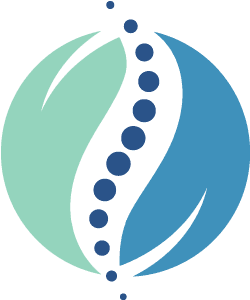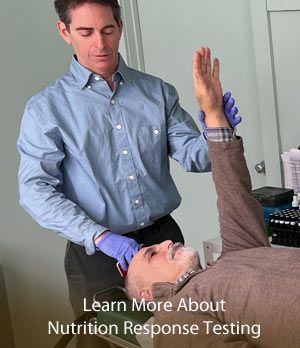PMDD Remedies NYC - Dr. Louis Granirer Holistic Chiropractor

"I have worked with many women who have been diagnosed with PMDD. Many of these women have imbalances in certain hormones like estrogen, progesterone, testosterone, allopregnanolone, prolactin, activin, inhibin, DHEA, cortisol, and thyroid hormones, but as you will learn, there is much more to consider."
-Dr. Louis Granirer
NYC Chiropractor
Natural Premenstrual Dysphoric Disorder (PMDD) Remedies in Kingston Ulster County NY 12401
NYC Chiropractor and Leading
Nutrition Response Testing Practitioner
For a Free Consultation
Premenstrual Dysphoric Disorder, or PMDD, is a condition that is viewed as a severe form of Premenstrual syndrome. It is similar to PMS in that symptoms tend to occur between ovulation and the start of a woman’s menstrual cycle. PMDD is characterized by severe emotional and physical symptoms that interfere with daily life and normal functioning.

Common PMDD Symptoms
The emotional and physical symptoms can include irritability, anger, exasperation, sadness, depression, anxiety, fatigue, difficulty concentrating, brain fog, memory issues, inflammation, joint pain, food cravings, breast tenderness, cramping, and bloating.
PMDD is classified as a mood disorder in the Diagnostic and Statistical Manual of Mental Disorders.
Holistic Support for PMDD
The Western medical model attributes PMDD to heightened sensitivity to normal hormonal changes and their effect on neurotransmitters in the brain, like serotonin. There is some evidence that individuals may be genetically predisposed to PMDD. Women with a family history of mood disorders or PMDD may be more likely to develop this condition. The medical standard of care for PMDD includes anti-depressants (SSRIs and SSNRIs) like Prozac, Zoloft, Lexapro, and Effexor. Birth Control Pills, anti-inflammatory drugs, Cognitive Behavioral Therapy, and lifestyle modifications may include exercise, sleep, and a balanced diet, as well as surgical treatments.
I have worked with many women who have experienced severe PMS symptoms or who have been diagnosed with PMDD. Many of these women have imbalances in certain hormones like estrogen, progesterone, testosterone, allopregnanolone, prolactin, activin, inhibin, DHEA, cortisol, and thyroid hormones. It is important when supporting a patient with PMDD to check for a vast panel of hormone imbalances and also to consider supporting their whole body.
I have found that many of these women have microbiome imbalances, which may include an overgrowth of fungus like candida, viruses like Epstein-Barr, cytomegalovirus, and some may have undiagnosed Lyme disease or spirochete activity, parasites, and bacterial issues. The microbiome influences all systems in the body and is a major contributor to overall health.
Mycotoxins or high levels of mold may be an immune challenge that is contributing to PMDD and other hormonal imbalances. Many women who are overburdened by high mold levels are either currently living in a home that has had water damage or living in an environment with high levels of humidity, which causes certain mold species to grow. Molds can also be ingested through certain foods. Mold and mycotoxins are high in foods like cashews, peanuts, walnuts, and tomato paste. Women are more prone to auto-immune diseases. This is partly because the X chromosome contains 800 to 900 genes, and many of these genes are used by the immune system. The Y chromosome contains 50 to 60 genes. Women have two X chromosomes, and men have one X chromosome and one Y chromosome. Men have fewer genes that interact with the immune system.
Many women with hormonal imbalances have food sensitivities that are increasing inflammation and affecting hormones and immune function. Certain foods like soy contain phytoestrogens and can directly affect hormones. If a woman is sensitive to dairy or other foods, this can contribute to chronic inflammation. Chronic inflammation affects the production of cortisol, insulin, thyroid hormones, pituitary hormones, estrogen, progesterone, testosterone, etc. Food sensitivities contribute to a leaky gut, which affects the gut microbiome. This can impair nutrient absorption. Nutrient absorption is critical to hormone production and balance. Certain women with PMDD may have vitamin and mineral deficiencies such as certain B vitamins, vitamins A, E, D, magnesium, selenium, zinc, amino acids, and essential fatty acids.
I have found some women with PMDD may have phase two liver detoxification imbalances such as methylation, sulfation, acetylation, glucoronidation, etc. These phase two liver detoxification pathways can be weak due to genetics, toxicity, and microbiome imbalances. By supporting these pathways this can help with hormone regulation and aid in proper hormone production.
Certain women with PMDD have toxicity that is potentially increasing their estrogen levels and causing an imbalance in progesterone. Many toxins are endocrine disruptors that increase estrogen and can decrease progesterone. If a woman has high levels of pesticides, BPAs, forever chemicals, and heavy metals, it can increase the likelihood of having hormone imbalances. Women with toxic overload may do well with targeted and gentle detoxification to reduce their toxic burden. I have found many women with PMDD and toxic overload also have sluggish lymphatic systems. An important focus in care is the opening up of the lymphatic channels to assist with drainage and their ability to clear toxins from their bodies. A woman who has sluggish bowels and is constipated may have more hormonal imbalances because of their inability to clear hormonal byproducts and toxins from their body. Regular bowel movements can have a dramatic impact on hormonal balance.
Certain herbs can directly impact hormone regulation. Herbs like black cohosh, blue cohosh, wild yam, St. John’s wort, chaste tree, Shatavari, Korean ginseng, smilax, suma, dong quai, maca, Rhodiola, Schisandra, red raspberry leaf, red clover, Ashwagandha, and Rhemannia can help to balance the endocrine system. Muscle testing provides a clear path for a practitioner to identify which herbs may be the right fit for a patient to support hormonal balance. Some may be helpful, while others can be antagonistic, and it is important to have a qualified practitioner determine the right dosages and which supplements are best. I do feel that the DUTCH Test is another great way to determine hormone levels. This is a dried urine metabolite test that is more accurate than bloodwork.
Contact NYC Chiropractor Dr. Louis Granirer for a PMDD Free Consultation
The key to supporting a patient with PMDD is to support the entire body by identifying underlying causes and deficiencies. There’s generally a combination of causes, rather than a single cause, that contribute to a person’s imbalances.
Contact Dr. Louis Granirer today.



